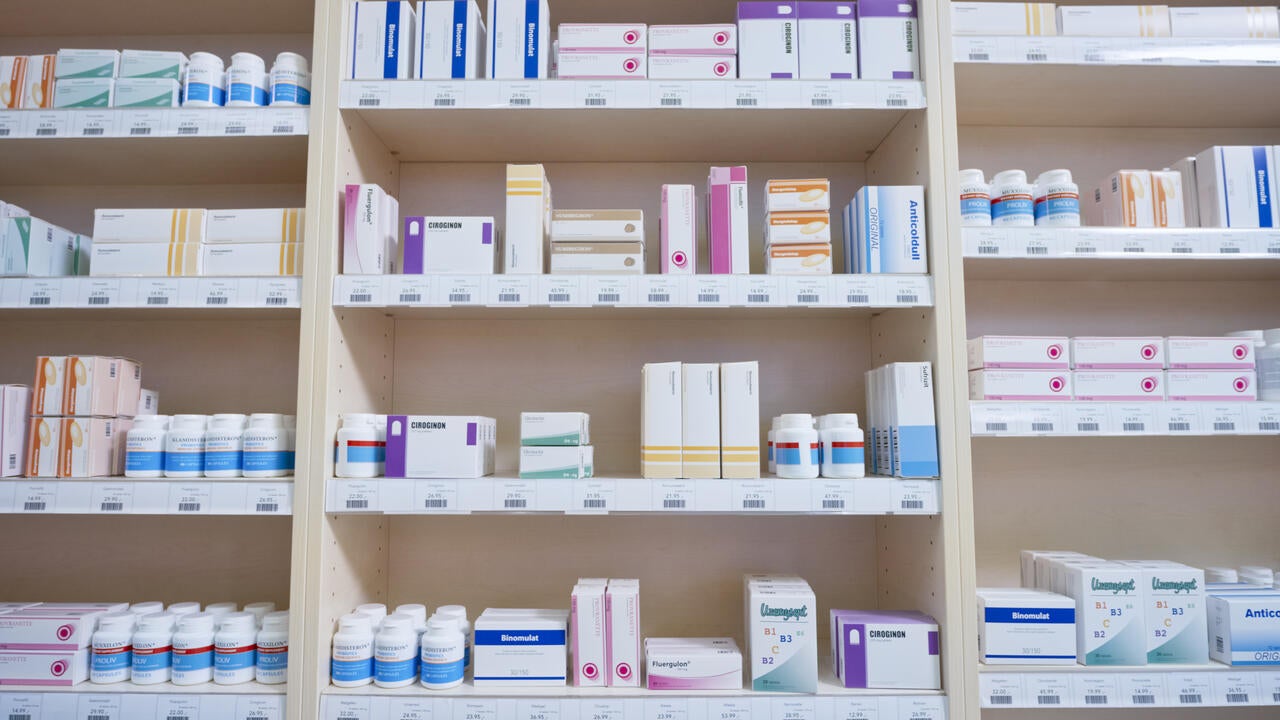
Q and A with the experts: Treatment options for mild COVID-19
Are COVID-19 drugs recommended for everyone?

Are COVID-19 drugs recommended for everyone?
By Media RelationsThere are four treatment options available for mild cases of COVID-19. What are they, and how do they work?
Kelly Grindrod, a pharmacist and University of Waterloo professor, answers common questions about these medications.
What is “mild” COVID-19?
Mild COVID-19 means that you have tested positive for COVID-19 and have symptoms, but you are not sick enough to need extra oxygen. Symptoms of mild COVID-19 can include a cough, sore throat, headache, runny or stuffy nose, nausea, diarrhea, muscle aches, fever, low energy, and/or a change in taste or smell. Mild COVID-19 can quickly become more severe.
Are COVID-19 drugs recommended for me?
If you are at higher risk of hospitalization from COVID-19, treatment may be recommended for you. People at the highest risk include those who are not vaccinated or who are immunocompromised. Others at high risk include those who have received only one or two vaccine doses, are older, and/or have multiple chronic medical conditions. Treatments are not recommended for everyone with mild COVID-19. We do not know yet if people who have a lower risk of hospitalization from COVID-19 will benefit from these drugs. Talk to your doctor or healthcare provider who can help advise whether you would benefit from this medication.
What drugs can be used to treat mild COVID-19?
There are four drugs that may be recommended for you in the case of mild COVID-19. Health Canada has approved two prescription drugs that can be used for mild COVID-19.
There are two other drugs that have been available for years, but that may also be used for COVID-19.
Why are COVID-19 treatments recommended more strongly for people who have not been vaccinated yet?
People who have not been vaccinated yet are at higher risk of needing to be treated in hospital than most people who are up to date with COVID-19 vaccines. We do not know if these drugs will benefit most people who have had all recommended vaccines. Right now, the risks of side effects and drug interactions are greater than the known benefits of treatments for most people whose vaccines are up to date.
Do I need to have a positive COVID-19 test to get treatment?
Yes. A test is needed to confirm that you have COVID-19. A polymerase chain reaction (PCR) test is preferred. Rapid antigen tests (RAT) may also be used (in-person, or in some cases, at home).
I have tested positive, but I don’t have symptoms. Would I benefit from treatment?
No. Mild COVID-19 is treated to prevent it from becoming severe. If you do not have any symptoms, it is unlikely you will develop severe COVID-19. However, if you develop symptoms after becoming positive, you should be assessed for treatment.
Where can I get these treatments? How much do they cost?
Drugs like Paxlovid and Remdesivir are available for free. In Ontario, you can get Paxlovid through a COVID-19 testing centre. You may also be able to get a prescription from your primary care provider that can be sent to your pharmacy and delivered to your home. Remdesivir is given in an infusion centre or a hospital clinic.
Fluvoxamine and Budesonide can be prescribed by a primary care provider and filled at your pharmacy. However, there may be a fee for Fluvoxamine and Budesonide, depending on your prescription drug coverage.
How well do these drugs work?
These drugs have been shown to be helpful for people at higher risk of needing to be treated in hospitals.
Paxlovid was studied in unvaccinated people who had other health conditions. In the study, people were given Paxlovid within five days of their first COVID-19 symptoms.
Paxlovid lowered the risk of needing to be treated in hospital or dying by 88 per cent.
Remdesivir was studied in people who had mild COVID-19 and at least one risk factor for needing to be treated in hospital. When given within seven days of first COVID-19 symptoms, Remdesivir lowered the risk of needing to be treated in hospital or dying by 87 per cent.
Fluvoxamine lowered the risk of needing to be treated in hospital by 32 per cent when given to people at higher risk of severe COVID-19.
The Budesonide inhaler did not lower the risk of needing hospital care, but it did help people’s symptoms improve more quickly. It may be prescribed alone or with Paxlovid, Remdesivir, or Fluvoxamine.
Is it safe to take these drugs with my other prescriptions?
It is important to review all drugs you use with your prescriber and pharmacist, even natural health products. Paxlovid and Fluvoxamine can interact with many drugs, so you may need to change your regular medications for a short period. Remdesivir and Budesonide have fewer drug interactions.
For answers to other common questions about COVID-19 treatment, see this FAQ resource created by Grindrod and the Focused COVID Communication team.

The photo shows a European bat species affected by White-nose Syndrome.
Read more
Study highlights the biological mechanisms behind a disease that has caused over 90 per cent declines in some bat species

Read more
The Government of Canada announces funding to support research in food policies and medical devices

New research examines the carbon-removal potential of strategic planting (Getty Images/Zhao Qin).
Read more
AI-powered modelling shows planting in northern forests could help Canada become carbon neutral by mid-century
The University of Waterloo acknowledges that much of our work takes place on the traditional territory of the Neutral, Anishinaabeg, and Haudenosaunee peoples. Our main campus is situated on the Haldimand Tract, the land granted to the Six Nations that includes six miles on each side of the Grand River. Our active work toward reconciliation takes place across our campuses through research, learning, teaching, and community building, and is co-ordinated within the Office of Indigenous Relations.